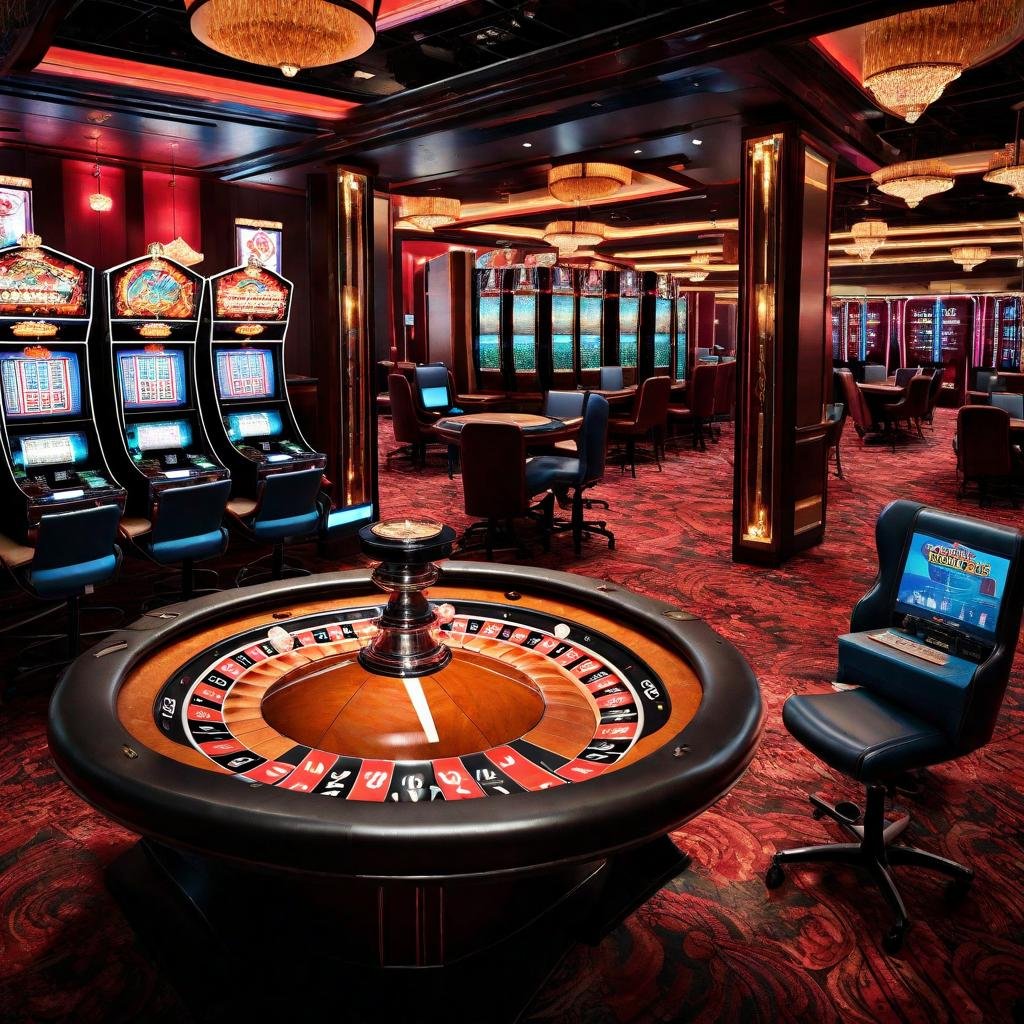
Casino gaming has long been a topic of interest and debate, drawing in millions of players globally. With a mix of luck, strategy, and the excitement of uncertainty, casino games offer an exciting escape from everyday life. However, as entertainment becomes ever more accessible, it invites a more thorough examination of the morality surrounding these games.
At the heart of the debate lies the question of whether casinos promote safe gambling or take advantage of vulnerable individuals. The appeal of potential winnings versus the truth of losses can create a complex situation, and understanding this balance is essential for both players and operators. As we delve into the morals of casino gaming, we will explore the duties of casinos, the impact on society, and the steps that can be taken to foster a better gaming environment.
The Impact of Casino Gaming on Society
Gambling in casinos has a considerable influence on the community, affecting not only the financial landscape but also social behaviors and local frameworks. The revenue generated from casinos can lead to job creation and boost regional economies, as they provide numerous employment opportunities in multiple fields including food and beverage, entertainment, and shopping. However, while the economic advantages can be significant, communities often grapple with the possible negative impacts that arise from increased gambling activity.
Additionally, the presence of casinos can lead to an increase in gambling addiction, presenting serious challenges for players and families. The excitement of casino games can quickly evolve into a compulsive habit, affecting connections with others and leading to monetary issues. Many players may struggle with the loss of control over their gambling habits, resulting in a need for assistance programs and help to address this increasing issue. Ga179 The social cost of gambling addiction can ripple through kinships and neighborhoods, creating an urgent need for responsible gaming initiatives.
In addition to the economic and social ramifications, casino gaming often reflects cultural attitudes towards uncertainty and leisure. It can foster a sense of joy and leisure, attracting tourists and boosting local travel. However, this allure may also conceal the wider implications of gambling as a method of entertainment, provoking ethical questions about its advertisement and availability. As communities weigh the advantages and drawbacks of casino gaming, the need for sensible approaches and regulation becomes increasingly critical in ensuring that the beneficial elements are enhanced while minimizing the potential harms.
Moral Issues in Gambling Activities
The morality of gambling gaming often center around the potential for addiction and its effects on people and households. Betting can lead to significant financial distress, impacting not only the gamblers but also their families. As people become caught in the appeal of winning, many lose track of their budget, which can result in catastrophic results such as bankruptcy. This poses ethical questions about the responsibility of gambling establishments in promoting responsible gaming habits and providing support for those who may be dealing with betting addiction.
Another major concern is the promotion of betting to vulnerable groups. Casinos often aim at low-income individuals or neighborhoods with the offer of fast rewards, which can perpetuate cycles of poverty and despair. In this context, the ethics of advertising strategies used by casinos come under scrutiny, as they may exploit the need of people seeking an escape from economic troubles. This manipulation raises ethical questions about the integrity of the gambling industry and its responsibility to protect its most at-risk customers.
Additionally, the impact of gambling gaming on the community as a whole cannot be ignored. While some argue that gambling establishments create employment and boost local economies, others point to the community costs associated with problem gambling, increased criminal rates, and a strain on public services. Balancing financial advantages with the risk for community issues presents a complex moral dilemma for lawmakers and casino operators alike. The difficulty lies in finding a responsible approach that prioritizes the well-being of individuals and society while still permitting for the enjoyment of casino gaming.
Regulatory System and Responsibilities
The regulatory framework pertaining to casino operations is developed to ensure fairness, honesty, and participant safety. Various government bodies and casino commissions establish and implement regulations that dictate how casino games function, the criteria for product design, and the procedures for managing prizes. These regulations change by region but usually involve permit requirements for businesses and stringent measures to prevent fraud and scams.
In addition to oversight bodies, gambling businesses bear considerable accountability in maintaining moral standards within their establishments. They must enforce responsible gaming practices that promote player protection and awareness, including presenting self-ban options and providing information about the dangers associated with gaming. Establishments are also responsible for training workers to recognize signs of difficult gaming and understand the correct steps to support patrons in need.
Additionally, transparency in casino operations is crucial for earning and keeping public confidence. Gaming establishments should present clear information about the chances of activities, advertising opportunities, and any related risks. By creating an environment of transparency and accountability, casinos can help reduce the likelihood negative impact of gambling while boosting the general gambling experience for all gamblers.
